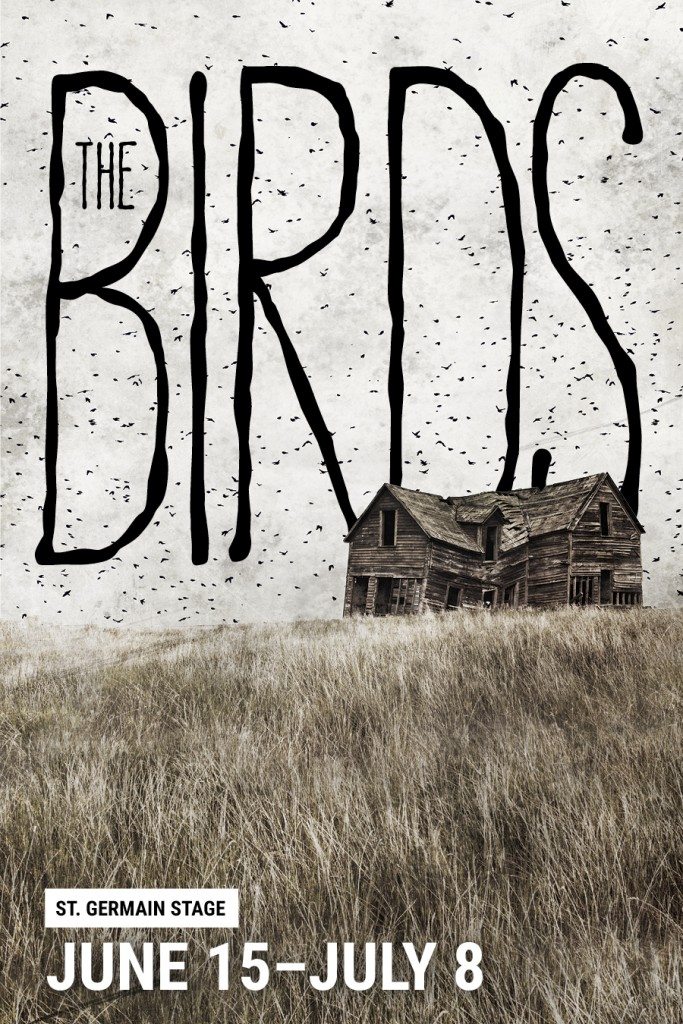An Interview with Conor McPherson
What attracted you to adapting Daphne du Maurier’s story “The Birds” for the stage?
What initially attracted me was the extreme situation the characters find themselves in. When I was a kid I was always a fan of George Romero’s zombie movies. And what I think I liked most about them was the apocalyptic element; the idea of the last human beings at the end of the world. What makes their lives worth living? Is it just a biological instinct or is it real hope and belief in the sanctity of life? In terms of a stage play, I realized that the idea of people trapped in an uncompromisingly desperate situation was a strong theatrical premise with lots of forbears such as Beckett and Pinter. I felt that the situation spoke to our existential concerns while also allowing the forward momentum of a thriller.
Daphne du Maurier has a strong sense of place in her stories and has a tendency to write about the supernatural too. Your own work has shown similar features. Were you drawn to du Maurier’s work because of these connections or were there other elements that interested you in the author’s writing?
I felt comfortable with du Maurier’s fascination for the gothic or the otherworldly in her literature, perhaps because I have often been drawn to these themes myself. Whereas some people might classify the horror genre as sensationalist, there have always been writers who elevate it and expose its unique vein of philosophical and psychological inquiry. I think du Maurier successfully straddled the ambiguous border between popular fiction and genuine literature. Perhaps for this reason many of the adaptations of her work, such as Nicolas Roeg’s film Don’t Look Now or the different versions of Rebecca − or indeed Hitchcock’s The Birds find such continual resonance in the retelling.
While the play is clearly based on du Maurier’s story, you’ve definitely made it your own. How much of an influence did the original story have on your work? How free did you feel free in the adaptation process or did you sense a constriction here?
I felt quite free in how I adapted the story. In fact all that remains intact is the idea of flocks of birds attacking people at high tide. In the original story Daphne du Maurier conveys a sense of claustrophobia by telling us everything through the eyes of one character; a man called Nat. In order to develop a live drama I needed to create further characters and so the story altered considerably as a consequence. In prose the writer can take you inside someone’s mind and never need to go beyond that place. On stage we need to flesh out the external environment where more than one character can interact. However, I use the unusual device (unusual in theatre) of a voice over. This is a device more associated with cinema, but I felt it would take us inside the mind of one particular character, Diane, and allow us to read her thoughts at various times in the play. The joy of this is twofold. In one sense it allows us to root for her, but then as her actions become more and more morally questionable, is makes us complicit in her actions, thus adding a layer of discomfort to the proceedings which we mightn’t otherwise achieve.
This is the first time you have adapted a literary piece for the stage. What struggles or difficulties did you encounter? What joys did you discover in the process? Do you foresee yourself adapting other stories for the stage in the future?
Yes, this is the first time I ever adapted anything for the stage. The real problem is that you have to let go of the original material almost as soon has you have enough to fire you up and inspire you. This is obviously where your confidence gets tested, especially when you are working with such well known – and loved – material. The key to freeing me up was trying to find the mythic structure behind the story. There is something biblical in the notion of a plague of birds descending on humankind. This inspired me to use the Old Testament in the form of the Book of Genesis, and to meld it with the Book of Revelations – essentially writing about the human experience of the idea of God. There is a kind of clash between the Old and New Testaments at the heart of the story as I have imagined it. I find that writing always takes me on an unpredictable, perhaps even spiritual, journey. I don’t know that I would adapt any other prose work for the theatre, but if I did, I imagine it would have to be something that could take me on that journey.
Did the Alfred Hitchcock film influence your adaptation at all? Have you seen the film? Have you purposely avoided seeing the film?
Hitchcock’s movie is entirely different from du Maurier’s short story, just as my play is, but I did purposefully avoid watching the movie until I had finished the play. The story, the film, and my play are all very different – beyond the initial idea of malevolent birds.
January 2012 Interview prepared by Aleah Sternberg for the The Guthrie Theater’s THE BIRDS Playguide.


